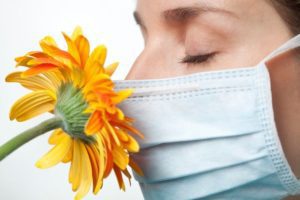New Help for Hay Fever

 The day is coming when you may be able to say goodbye to hay fever for good. The last couple of years have seen remarkable advances in immunotherapy. Instead of multiple visits to your doctor for shots, you can take tablets and drops at home. The treatments have the potential to permanently change your body’s response to allergens, but may take about 5 years to work.
The day is coming when you may be able to say goodbye to hay fever for good. The last couple of years have seen remarkable advances in immunotherapy. Instead of multiple visits to your doctor for shots, you can take tablets and drops at home. The treatments have the potential to permanently change your body’s response to allergens, but may take about 5 years to work.
Until that happy day, there are other things you can do to find relief for your stuffy nose and itchy skin. In fact, most individuals can manage their symptoms by avoiding common triggers and irritants. Learn more about your options.
Facts about Hay Fever:
1. Know the numbers. More than 40 million Americans suffer from allergic rhinitis, commonly known as hay fever. Having asthma, eczema or a family member with the condition increases your risk.
2. Understand the causes. Despite the name, hay fever usually has little to do with hay or fever. It’s an allergic sensitivity to plant pollens, mold spores, and other substances. It can be seasonal or year-round.
3. Spot the symptoms. Typical signs include a runny nose, itchy eyes, and sneezing. Hay fever can also disrupt your sleep and interfere with your concentration.
Living with Hay Fever:
1. Stay indoors. Check the weather forecast for the pollen count. Stay indoors during peak hours, especially if it’s windy. If you must go outside, protect your eyes with wrap-around sunglasses, and keep your car windows rolled up.
2. Clean up. Fight mold by scrubbing any damp areas in the kitchen and bathroom with warm water and vinegar. Wash pollen off your face and hands when you come inside.
3. Groom your dog. Actually, ask someone else to brush him. Pet fur traps pollen so keep your pets trimmed and bathed.
4. Adjust your diet. Some studies suggest that yogurt and other probiotics reduce inflammation. On the other hand, raw fruits like apples and melons may aggravate symptoms because your body mistakes their proteins for pollen.
5. Drink water. Substitute seltzer for your evening cocktail. Water thins mucus while alcohol dehydrates you.
6. Avoid smoke. Cigarette smoke tends to make any allergy worse. The same goes for other irritants from perfume to car exhaust.
7. Slow down. Are you feeling weak and irritable because your symptoms are keeping you up at night and adding to your stress levels? Find some quiet time to rest, and be extra careful while driving or operating heavy machinery.
Treating Hay Fever:
1. Try corticosteroids. Most experts agree that nasal corticosteroids are the safest and most effective treatment for hay fever, especially if you start taking them at least a week before pollen season starts. Plus, spray formulas help to prevent the side effects associated with taking steroids by mouth or injection.
2. Use other drugs. There are other drugs that can help if you’re unable to take corticosteroids or need additional help. Your doctor may recommend prescription or over-the-counter antihistamines and decongestants. Talk with your allergist if you experience excessive dryness or drowsiness or your antihistamine doesn’t seem to work as well as it used to.
3. Consider immunotherapy. Immunotherapy may be the answer if your allergies are severe or you’re not responding to other treatments. It’s currently being used for grass and ragweed allergies only, but relief for other allergens could be on the way.
Talk with your doctor if you think you might have hay fever or other allergies. Your physician can help you decide whether immunotherapy or simple home remedies can help you breathe better and feel more energetic.
CLICK HERE to Explore/ Our Free Online Courses
Responses